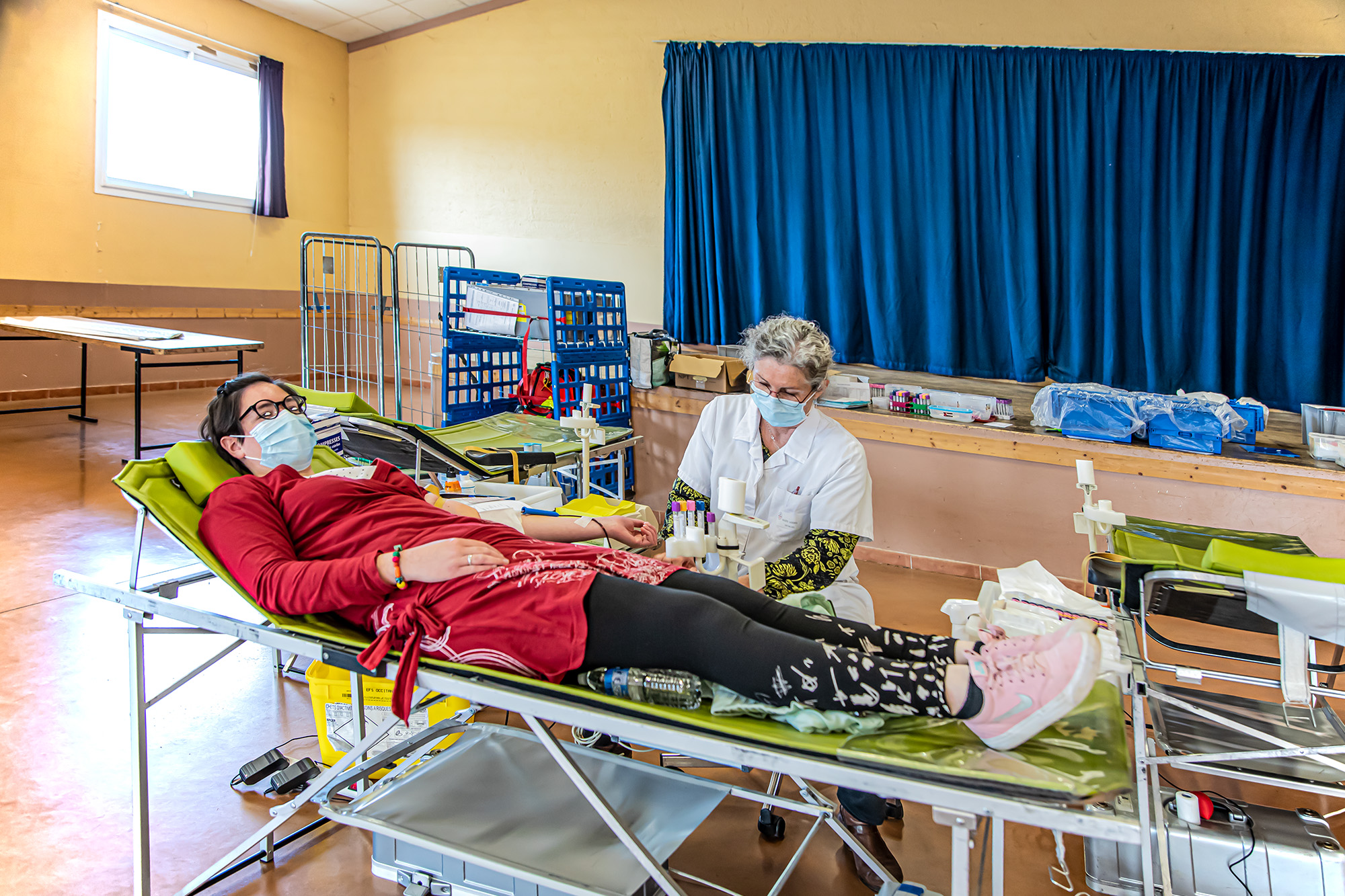When you donate blood to Manciet, which is offered three or four times a year, you can usually expect to taste garbure, as well as wonders, made by Alberte Lapart. With the health crisis, the garbure is no longer relevant, but the wonders are still there.
Created in the 1980s by the director of the school at the time, Michèle Van Andringa, Association for voluntary blood donation of Manciet and Armagnac had fallen asleep, then she was awakened in the 1990s. But it was in 2005 that she officially saw the light of day, the only one of her kind in all of Armagnac at the time. But since 1990, without interruption, around forty donors have been faithful, as we can see from the register kept by co-president Alberte Lapart.
Collection of March 4, 2021
This March 4, 2021, we find François-Xavier Hurstel and Alberte Lapart at the village hall of Manciet. They have always been members of the association: Alberte Lapart is co-president, with the mayor, Pierre Capdepont and François-Xavier Hurstel is secretary. The latter tells in the last municipal bulletin what we report above.
The Journal of the Gers was greeted with kindness (plus a coffee and wonders), in a serene atmosphere. We feel that the blood drive in Manciet is a well-established affair.
It is the volunteers of the association who welcome the donors and serve them a Gers snack and restorative after their blood donation. The French Blood Establishment (EFS) of Tarbes comes with one or two doctors, staff to set up beds and corners reserved for doctors who interview donors.
In the municipal bulletin, François-Xavier Hurstel and Alberte Lapart recall that “donating blood represents an act of solidarity, a civic act and that the needs for blood products are increasingly important; no one can say that they will never need them ”.
Note that the next blood drive sessions in Manciet take place on July 13 and November 3.
Recall : blood donation, a serious matter
The sequence of the “blood donation” sequence is applied with rigor:
-
the donor candidate receives a very detailed questionnaire which allows to detect temporary or permanent incompatibilities with a donation,
-
the questionnaire is verified during a confidential interview, either with a nurse for people aged 18 to 65, or with a doctor for those over 65,
-
the candidate’s blood pressure is taken,
-
a restorative snack is offered to donors,
-
later, an analysis of the blood taken is performed at the EFS.
The incompatibilities are of a very diverse nature. For example, temporary incompatibilities range from a recent trip abroad, to anemia, to fever. Permanent incompatibilities can be related to illnesses. In all cases, the EFS directly warns each person confidentially if there is any incompatibility.
– .


